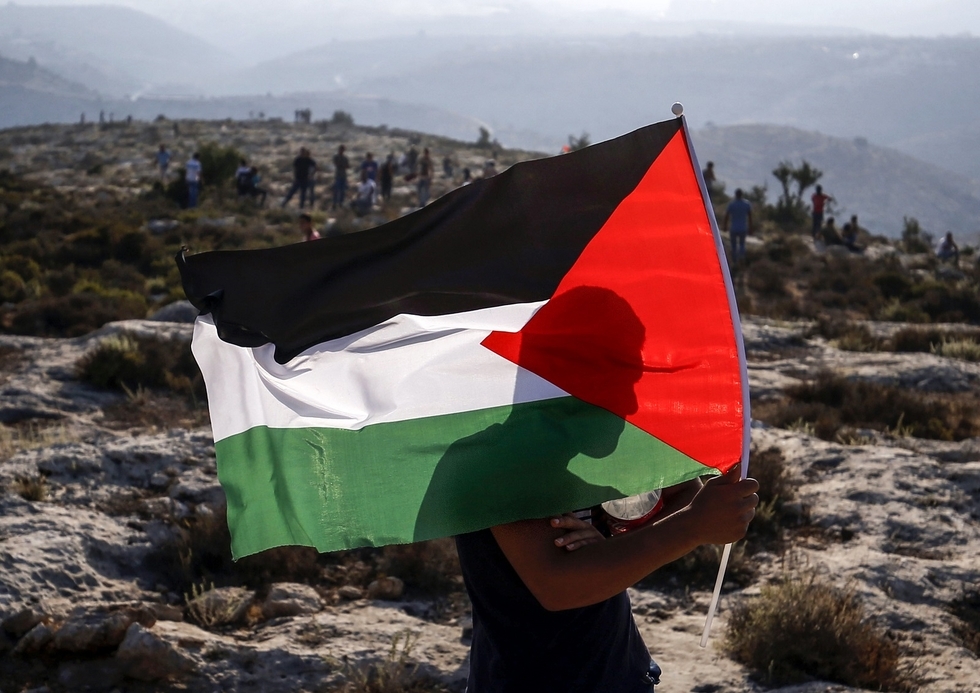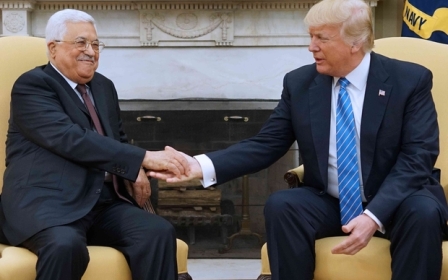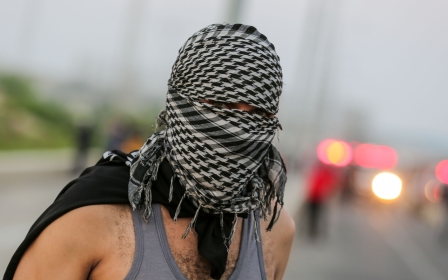ANALYSIS: Closing PLO office another Trump move to subdue Palestinians

The Trump administration's decision to close the Palestine Liberation Organisation's office in Washington is another attempt to erase the Palestinian cause, analysts say.
Monday's announcement is the latest in US President Donald Trump's aggressive policies against Palestinians.
US National Security Adviser John Bolton threatened on Monday to impose sanctions on International Criminal Court officials if they prosecute the US or Israel for war crimes. He confirmed that the closure of the PLO office is in response to Palestinians' turning to the ICC to investigate Israeli violations.
Since taking office in 2017, Trump has moved the US embassy to Jerusalem, declaring the holy city as Israel's capital; pulled the US out of the UN cultural body UNESCO accusing it of "anti-Israel bias"; withdrew from the UN Human Rights Council over its criticism of Israeli policies; and cut funding for UN Relief and Works Agency for Palestine Refugees (UNRWA).
Washington also suspended $25m in aid for hospitals that serve Palestinians in East Jerusalem, which was illegally annexed by Israel in 1982.
"This is a continuation of existing policy in the Trump administration, which has long been to bludgeon Palestinians effectively into submission for Israel's wishes," Omar Baddar, deputy director of the Arab American Institute, told MEE.
Deal of the century
Trump had vowed to succeed where his predecessors failed in solving the Israeli-Palestinian conflict, but his peace proposal dubbed the "deal of the century" has been rejected by Palestinians even before it has been officially released.
The plan reportedly offers Palestinians a provisional government without Jerusalem, while keeping major Israeli settlements that spread across vast parts of the West Bank.
"The plan calls for having a Palestinian state with provisional borders on half of West Bank and the Gaza Strip, without Jerusalem, and calls for humanitarian solutions to the refugee issue," a Palestinian official told MEE in March.
Besides moving the embassy to Jerusalem, Trump's administration has failed to denounce settlement expansion, which violates international law.
Tamara Kharroub, assistant executive director at the Arab Center Washington DC, said the closure of the PLO office is another attempt by the White House to "blackmail" Palestinians into accepting Trump's peace plan.
"Relations between the Palestinian Authority and the Trump administration have been frozen since the announcement on Jerusalem, but the significance of this move lies in the escalation of attacks and collective punishment against Palestinians," Kharroub said in a statement.
"In another pro-Israel move, the Trump administration is losing what remains of its credibility as a mediator or leader of the peace process."
Trump has boasted about taking Jerusalem off the negotiations table by relocating the US embassy there from Tel Aviv, although Palestinian officials and Arab leaders have reiterated that peace is not possible without addressing Jerusalem's status.
Similarly, Washington is trying to change the definition of Palestinian refugees in a bid to take the right of return out of the negotiations.
More than 700,000 Palestinians were forced out of their homes in the events leading up to the establishment of the state of Israel in 1948. Survivors and their descendants live in camps in neighbouring Arab countries, the West Bank and Gaza.
"The message to Palestinians is simply that they are not equals to Israel and that they should not be seeking any form of accountability and that Israel is above the law," Baddar said.
"Needless to say, this is moving us much further away from the possibility of peace."
However, Baddar predicts that Trump's bullying of Palestinians will not work despite creating immense hardships for refugees.
"At the end of the day, you cannot erase people by cutting funding to them," he said.
'Laughable and absurd'
In announcing the closure of the PLO office, the US Department of State stressed that Washington is not abandoning its role as a peace broker.
"The United States continues to believe that direct negotiations between the two parties are the only way forward," State Department spokeswoman Heather Nauert said in a statement.
"This action should not be exploited by those who seek to act as spoilers to distract from the imperative of reaching a peace agreement. We are not retreating from our efforts to achieve a lasting and comprehensive peace."
Baddar called the assertion a "laughable and absurd" proposition.
Closing the PLO office, along with designating Jerusalem as the capital and cutting aid to Palestinian refugees, raises tensions and will make it more difficult to address the root causes of the conflict as a result
- Debbie Dingell, US Congresswoman
"The idea that the Trump administration is involved in any kind of so-called peace effort is preposterous," he told MEE.
Baddar added that Trump's policies aim to give the government of Israeli Prime Minister Benjamin Netanyahu a free pass to do whatever it wants.
"They can call it a peace deal, but that's just a misnomer; they're using words that are disconnected from reality."
Congresswoman Debbie Dingell, a Michigan Democrat whose district includes a large Arab community, said the closure of the PLO office erodes the peace process and makes it harder for Washington to engage in diplomacy with Palestinians.
"The US must be an honest broker between the Palestinians and Israelis," Dingell said in a statement. "Closing the PLO office, along with designating Jerusalem as the capital and cutting aid to Palestinian refugees, raises tensions and will make it more difficult to address the root causes of the conflict as a result."
US Senator Patrick Leahy also denounced the decision, calling out the "unnecessary and provocative steps" against Palestinians.
"Forcing the PLO office in Washington to close will make the situation worse by cutting off one of the few official channels of communication with the Palestinians," Leahy said in a statement.
"Cutting off US support for the East Jerusalem Hospital means that thousands of sick people, especially children, who depend on it for care will be at risk. These are the actions of an administration that has failed at diplomacy."
The ICC
Attacks on the International Criminal Court reflect a broader trend in the Trump White House to disengage from international institutions, often citing Israel.
Bolton, who threatened the court with sanctions on Monday, is known for his disregard for the United Nations, where he served as US ambassador under President George W Bush. In 1994, he said if the UN secretariat building in New York "lost 10 stories, it wouldn't make a bit of difference".
Rights groups condemned Bolton's warnings to the ICC.
"Trump cites Palestinian quest for International Criminal Court investigation of Israel as one reason to close the PLO office in Washington," Kenneth Roth, executive director of Human Rights Watch, said in a tweet. "Given Israel's lack of meaningful self-investigation, it's as if Trump is suggesting Israel should be above the law."
Amnesty International said the threats against the court constitute an attack on the millions of victims and survivors of war crimes.
"The ICC prosecutes the most serious crimes under international law – genocide, war crimes, crimes against humanity, and the crime of aggression," Adotei Akwei, deputy director advocacy and government relations at Amnesty International USA, said in a statement.
"Resuming attacks against the court sends a dangerous signal that the United States is hostile to human rights and the rule of law."
New MEE newsletter: Jerusalem Dispatch
Sign up to get the latest insights and analysis on Israel-Palestine, alongside Turkey Unpacked and other MEE newsletters
Middle East Eye delivers independent and unrivalled coverage and analysis of the Middle East, North Africa and beyond. To learn more about republishing this content and the associated fees, please fill out this form. More about MEE can be found here.




